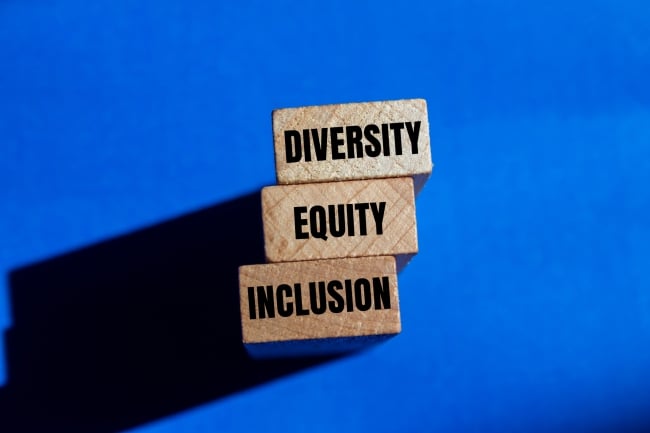You have /5 articles left.
Sign up for a free account or log in.

Emre Akkoyun/iStock/Getty Images Plus
Trump is coming for higher education. His congressional allies are already armed with measures like HR 6848, which would ban universities from inviting statements that document a professor’s “past or planned contributions to efforts involving diversity, equity, and inclusion.” Outlawing DEI statements makes sense for a president who loves to vilify America’s universities and discredit their democratic commitments. What might be less obvious is that bills like HR 6848, because they curtail university autonomy and undermine DEI initiatives, threaten one of higher education’s most sacred values: academic freedom.
The American Association of University Professors gets it. In a recent statement, the AAUP explained why DEI statements need not conflict with, and often fortify, academic freedom. Albeit less of a focus, the AAUP also surfaced why anti-DEI laws—including DEI statement bans—exact a double toll on academic freedom.
Academic freedom cannot be divorced from the university’s core mission: To pursue truth and knowledge for the common good, which requires the free exchange and critical evaluation of competing ideas. To realize this mission, universities must generally be free from external interference and the faculty must have power to govern—particularly over matters of direct academic concern like hiring and promotion. This explains why the AAUP, even as it defends DEI statements, highlights that the faculty must take part in determining their use: “This collective faculty responsibility includes deciding whether to adopt the use of DEI statements, what issues faculty members will be asked to address in such statements, and how such statements will be used in faculty evaluation.”
Faculty power and university autonomy is precisely what bills like HR 6848 undercut. Similar concerns would arise were a university governing board or president to ban every department from inviting its own candidates to submit DEI statements. In both cases, faculty are denied power over a key site of academic governance.
Academic freedom is likewise threatened when politicians, donors or corporate interests exercise outsize control over the university’s affairs. Recent examples abound. Republican governor Ron DeSantis executed a hostile takeover of New College of Florida within a broader campaign to transform Florida’s university system into an arm of the state. Albeit less systematic, Democratic governor Josh Shapiro seems to have steered the University of Pennsylvania’s crackdown on pro-Palestinian protests—perhaps even enabling the ouster of Penn’s former president.
Corporate takeovers at institutions like George Mason University present a different version of this story. Over a recent 10-year period, an estimated $100 million in Koch-backed donations transformed parts of the once-quaint public university into a “free market” think tank that serves its billionaire industrialist benefactors. And since 2017, after Leonard Leo helped broker $30 million in donations to rename the university’s law school, the school now known as Antonin Scalia Law has received yearly $4 million gifts from DonorsTrust, once dubbed “the dark-money ATM of the conservative movement.”
The threats to academic freedom should be obvious when outside actors strip faculty power and co-opt the university to entrench partisan power, push personal agendas or maximize corporate gain. For this reason alone, DEI statement bans—because they deprive faculty of the authority to determine the criteria that govern hiring and promotion—erode academic freedom. Part of the answer requires democratizing governance within our own universities, which Timothy Kaufman-Osborn has aptly termed “autocratic academ[ies].”
But even if faculty reclaim power from the “absentee lay board of trustees,” a separate question is whether DEI criteria should factor into personnel decisions. The short answer is yes, in part because DEI contributions further the university’s mission by cultivating the kinds of intellectual environments where the open and critical evaluation of competing ideas is most likely to flourish.
What’s “another way to describe higher education’s core mission”? According to Stanley Fish, the answer is “good scholarship and good pedagogy.” Critics of DEI statements tend to place DEI somewhere outside of—if not contrary to—good scholarship and good pedagogy. That view is mistaken.
The best pedagogy and scholarship cannot occur without attending to paradigmatic DEI concerns. In the classroom or lab, the best teaching necessarily cultivates a learning environment free from societal stereotypes and stigma that, if left unaddressed, undermine learning, depress engagement and limit discourse. This might entail promoting a growth mindset, invoking countertypical exemplars or designing a physical space free from gendered norms. The best teaching also equips students to spot and interrogate their own presumptions that, if left unchecked, can compromise even the most well-intentioned analysis.
The same goes for the best scholarship, which must attend to the biases and heuristics that can infiltrate one’s own research and impair entire disciplines. The first step requires conceding that we (the academics, departments and institutions) are rarely as objective and neutral as we aspire to be—in ways that systematically undervalue the work and contributions of scholars from groups historically excluded from, and often denigrated by, the academy.
Quite simply, faculty do their best teaching and scholarship (not to mention service) when they actively nurture institutional cultures free from bias and harassment. Whatever their label, these contributions sit at the heart of faculty “merit” because they sharpen analytical pursuits and counter dynamics that otherwise stifle the voices best positioned to identify and trouble prevailing orthodoxies. From this vantage point, DEI statements comprise a common-sense tool to credit faculty for doing the work that “good scholarship and good pedagogy” already entails. Thus DEI statement bans do more than usurp power and undermine inclusion. They also hinder the open inquiry and critical analysis we now need more than ever.




